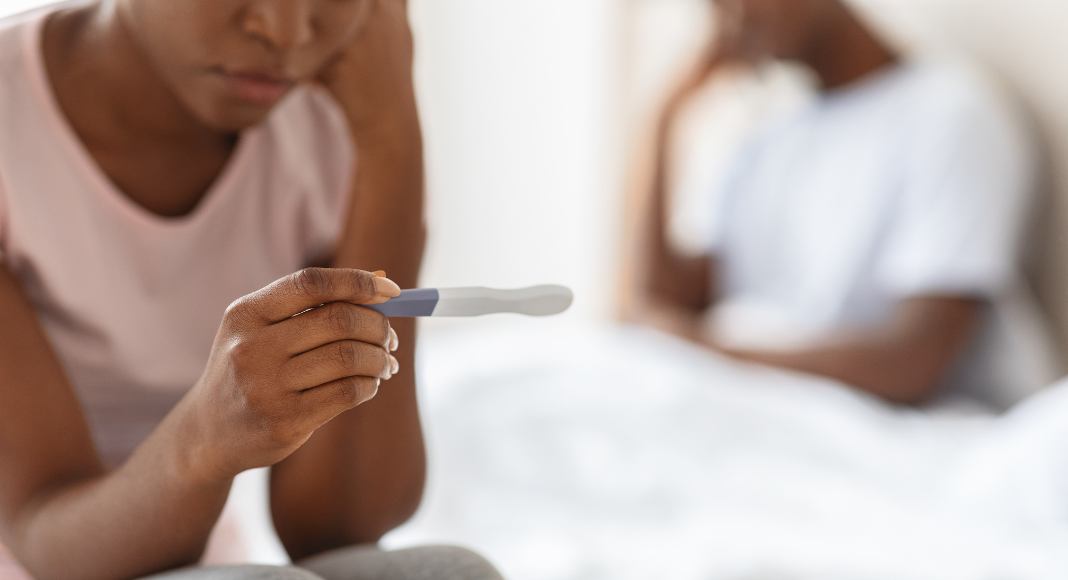
Infertility and Pregnancy Loss
My journey with infertility and pregnancy loss began on March 1, 2016…
…when I did not see my baby in the sac that meant to hold the first signs of life. My second pregnancy loss occurred on August 22, 2018, when I did not see my baby’s fluttering heart in the ultrasound at 11 weeks along. Years later, I remain afflicted by these losses. Many people can tell you the exact moments when they lost their unborn child(ren) and how old they would be today.
After experiencing pregnancy loss (PL) and speaking with others about my journey, I realized how many people suffer from similar grief. Infertility and pregnancy loss are not an anomaly. In fact, during my D&C (dilation and curettage) follow-up from my second loss, the physician indicated that a high percentage of all pregnancies end in pregnancy loss. A statistic, it seems, thrown out in an attempt to comfort grieving parents.
News flash: it’s not comforting.
Everyone experiences grief differently. However, women who experience PL/infertility also experience one emotion: shame.
Shame because our bodies failed to do what women have done since the dawn of time. Shame because we think there was something we did to shake the chromosomal tree during exercise or because of the glass of chardonnay we had. As far as I can tell, we blame ourselves.
My baby had Trisomy 14, a rare chromosomal disorder in which there are three copies of chromosome 14. This type of trisomy is typically incompatible with life.
I’d like to tell you this brought me peace. No genetic predisposition in myself or my husband existed. In some ways, this encouraged me, but it didn’t take away the fear, shame, or a sense of betrayal by my own body and by God.
Yes, I was angry with my Higher Power.
If you’ve experienced infertility/pregnancy loss, you may be nodding your head. Anger and blame are natural. So if you’re sitting there, mama, feeling guilty about being angry with your Spiritual Highness—don’t. You’ll ask for forgiveness later. Trust me.
I recently met with a group of brave women who have experienced long-term infertility and pregnancy loss, from two years to 12-year journeys as well as women who have experienced pregnancy loss after having earthside children. We realized there is a comparative value to infertility and pregnancy loss that exists. This topic cast a shadow on the taboo. It so profoundly affected each woman that experienced emotional rollercoasters from their immeasurable grief to feeling like their grief could be nowhere as profound as someone who had experienced infertility longer or who had experienced more pregnancy loss. Not to mention the resulting guilt from this thought process or the guilt from being able to conceive.
Can you imagine guilt about conception and birth after not being able to conceive?!
Look, mamas, guilt, and grief are subjective. Hear us now: this mighty group of women courageous enough to share their stories with you. Grief over a five-week pregnancy loss of a blighted ovum is just as profound, genuine, and severe as grief over a still-born child. Read that again. You are not alone. Read that again.
Women in both situations are grieving the loss of a child. From the moment you know you’re pregnant, you envision this tiny human, and your sole (and soul) purpose is to protect that spirit from anything which might cause them harm.
Why do we feel the need to keep infertility and pregnancy loss to ourselves?
What about our culture oppresses our voice about the death of an unborn child or the lack of conception? Is it because we have no headstone to visit? Does never seeing a baby’s face inhibit the brain from making the mind, body, and soul connection necessary to exist in grief with the griever? As humans, we support one another when a loved one dies: family or friend. Why, then, do we find support fleeting when we suffer the loss of an unborn child? Why do we tell ourselves our grief is unnecessary because our child never saw the sky? If you find these answers, please let me know.
So what can you expect emotionally when you involuntarily embark on a journey from infertility or pregnancy loss?
You may experience shame, fear, betrayal, inadequacy, anger, denial, or depression. You may experience acceptance. I’ve experienced happiness after my pregnancy loss. The stages of grief are normal. Is your journey fair? No. Are you strong enough to feel and manage your emotions? Yes.
And let us not forget our spouses. If your male partner is the cause of your family’s infertility, this may manifest in feelings of shame, guilt, inadequacy—a sense of fear and anger for not being able to provide for his family in the most fundamental and instinctual way. It’s not just us, ladies.
Grief for our unborn children is just as heavy as grief for someone on earth passing away. The difference is we can only carry that grief in our hearts because we are not able to share it with a burial ground or other people who knew your baby. If you’re experiencing this grief, seek help. If you know someone experiencing this grief, recognize it took bravery to share their turmoil. Be someone who can share this grief with a mother, whether she has recently suffered or is years away from loss. Like all grief, it may fade, but it never dies.
This post was originally written in 2018.

















